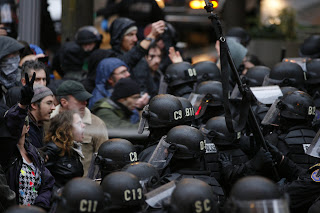Economics is not complex, but economic systems are.
Psychologists say some people have an analytic brain “Type C” and some of us have a “Type M” brain which is the part of our brain that uses empathy which helps us fit in, in a social situation.
Sometimes when people are in control of things there may seem like there is “order”. However, we only recognize “order” when something goes wrong.
- What Adam Smith spoke about the “Invisible Hand” he meant that there’s a possibility that through each of us doing our own social thing, something good may come out of it.
- The importance of “Tacit & Dispersed Knowledge” means that there’s a mechanism inside each and every one of us where we may appreciate something but are not able to vocalize or articulate the feelings to someone else.
- In economic terms, you on the farm may have the intuition about certain products that cannot be articulated to a third person.
“I, Pencil” in relation to the production and distribution of coffee (Rizzo's Economic Example) :
Impersonal- one common bit of nostalgia in older citizens is how personal everything USED to be. We should think more about the process and the people who are involved in the process.
Self Interest- Every part of this process is people exchanging skills for efforts and money.
Cognitive Issues- Everybody knows how to pack and distribute goods, but how come no one else tries? It only takes 40 cents to bring a kiwi from New Zealand to the United States, but no one else can bring it over than the people specialized to bring the fruit over.
No One Directed- no one was directed in bringing you these goods like coffee, but somehow there is always pizza made on Friday night, bagels on Saturday morning, and coffee whenever you want it. You never call someone to direct them on when you will want coffee or a bagel or pizza but the goods are always there. Everyone is somehow part of the “bigger picture”.
The record of command of economics illustrates the importance of “Tacit and Dispersed Knowledge”. We want to understand what are the things that exist in an economy that allows this process to work. What is the thread that ties everything together, to make tacit knowledge work in our society?
The thread that makes this all possible is the price system.







